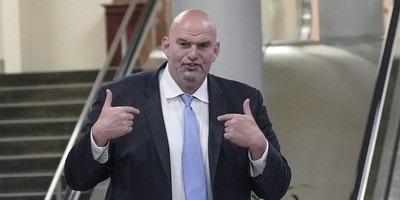The American Academy of Pediatrics (AAP) has a bold new strategy to tackle the ever-growing issue of childhood obesity — drugs and surgery. The organization released guidance last week stating that overweight kids may benefit from these extreme interventions starting as young as twelve years old. The disparate effects of obesity on low income children coupled with millions relying on school lunches to meet nutritional needs warrants fundamental changes in the school system, not expensive and invasive medical solutions.
The AAP does have one thing right — something must be done to help the nation’s kids. According to CDC standards, nearly twenty percent of US children were obese in 2020, a four-fold increase from the 1970s, and an issue that disproportionately affects kids from low income families. It’s reasonable to assume the AAP is well aware of the link between childhood obesity and income level. Yet their latest solution comes with a hefty price tag, with drug treatment coming in at around $1,300 a month and often not covered by insurance, and gastric bypass surgery averaging $23,000. In addition to being extreme, invasive, and dangerous, these medical solutions are financially out of reach for the kids most likely to be in need.
Many American kids are fed at least once a day within the public school system, and most of these students are low income. More than 30 million kids participate in the federally funded National School Lunch Program and about 15 million participate in the National School Breakfast Program. As it is, lower income kids are more than twice as likely to be overweight or obese as their peers. School lunches, managed by the USDA, are well known for being horrendous and a prime example of the incompetence of big government. Targeting school lunches and school nutrition and exercise programs is a direct path to helping the kids most likely to be obese.
Recommended
The AAP has, admirably, fought for children’s access to food, with decreasing childhood hunger listed among the core focus of their nutrition advocacy. But there is little evidence they have taken any considerable stand against the quality of food they consume at school — one of the central issues causing our kids to be overweight. Their advocacy web page makes no mention of efforts to increase physical activity among children or improve school nutrition, but does list several social slogans including “environmental justice” among their priorities. Their recent guidelines offer mention of a “whole child” approach to weight loss, including more of the same tired recommendations to eat better and exercise more. Concrete plans of action are greatly lacking aside from one-on-one mentorship recommendations, and considering the typical income bracket as well as the sheer number of kids affected, is a financially infeasible and practically impossible solution to the problem.
To have a demonstrable impact on the effects of childhood obesity, the AAP should shift their advocacy away from a variety of leftwing social causes and towards fundamental legislative and regulatory changes.Targeting school lunches would allow the AAP a direct path to these kids on a wide scale, and even those who are not overweight or obese will benefit from better nutrition standards.
The optimal diet can vary greatly from kid to kid, one of the many pitfalls of child nutrition being managed in a government-run, one-size-fits-all approach. But prioritizing diets rich in satiating, fresh, minimally processed foods is a good path forward. Key school meal changes should include reducing added sugars (chocolate milk is one of the biggest issue areas, and the AAP openly supports its inclusion), limiting the amount of processed foods, and requiring protein and healthy fats — both of which are satiating and good for brain health — to be included in every meal.
Another factor which contributes to the obesity crisis is the sedentary lifestyles perpetuated by the classroom environment. When children are fed carb-heavy, nutritionless food, and then required to sit still for most of the day, is it any wonder we have an obesity problem? The AAP should focus on school efforts to get kids outside as much as possible. Children should be playing outside, climbing trees, and catching bugs. To instill active habits in our youth, it is crucial to give them opportunities to engage in physical activities. Children who are participating in school meal programs should likewise be participating in dynamic physical programs which blur the lines between exercise and play. As it stands, the AAP does not appear to be engaging in any significant advocacy around this issue.
Insisting that overweight and often poor kids should add to the toxic load on their bodies by ingesting big pharma-approved pills and undergoing major surgeries is an unrealistic solution to a complex problem. The AAP should focus on solutions that can have a direct impact on overweight kids where they spend the majority of their time and consume most of their food — in schools.
Caroline Melear is a Young Voices Contributor and a Resident Fellow in Finance, Insurance, and Trade at a free market think tank. She has appeared on Fox Business, CBS Miami, and The Today Show and written for The Daily Caller and The Conservateur. You can follow her on Twitter @carolinemelear.

























Join the conversation as a VIP Member